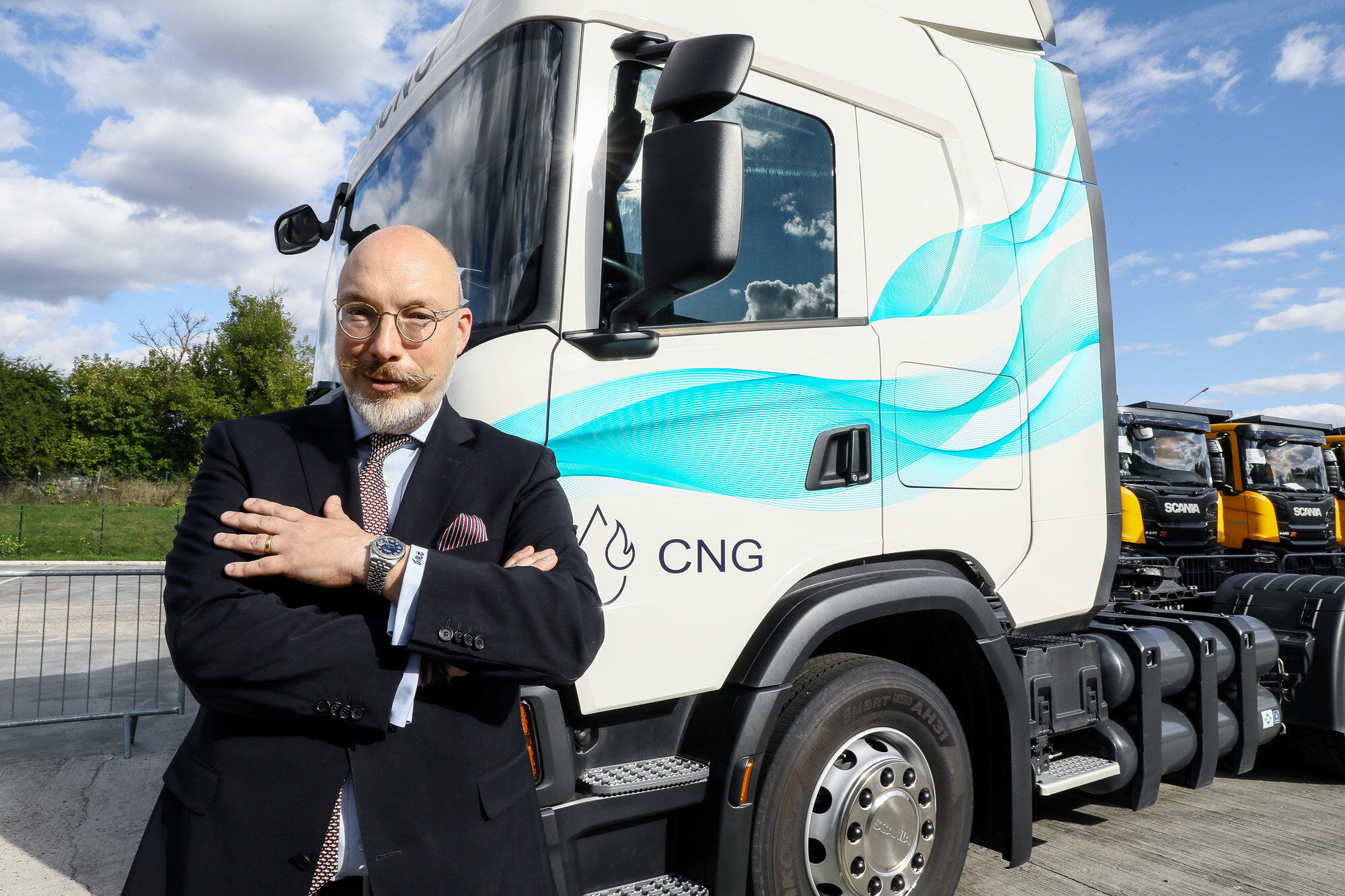Swedish truck maker Scania was one of the first Western businesses to risk going into Ukraine after it achieved independence in 1991.
The 125-year-old company witnessed all three Ukrainian revolutions and the country’s transformation from a Soviet satellite to a European state.
Yet, in the view of Håkan Jyde, managing director of Scania Ukraine, the country’s efforts to welcome foreign businesses are stymied by its weakest link: its broken legal system.
Ukraine’s judiciary is widely regarded as corrupt. Authorities have wielded judicial power as a tool to help themselves and had no interest in developing the courts into an independent branch of government, according to lawyer and ex-coordinator of judiciary watchdog Public Integrity Council Vitaliy Tytych.
The 2014 EuroMaidan Revolution that ousted former President Victor Yanukovych was the first big step forward in eliminating corruption but the judicial system still needs radical change. The two subsequent Ukrainian presidential administrations have drawn criticism for failing to tackle graft or even perpetuating it. Previous attempts at judicial reform have been for show, Tytych said.
The lack of rule of law makes foreign businesses afraid to come in, even though Ukraine is well-positioned between Europe and Asia and has one of the largest consumer markets in Europe. Those that are already here often have to fend off hostile litigation. Scania Ukraine is embroiled in two lawsuits that could cost the company over $10 million if it loses in court.
“There needs to be a reliable judicial system so that foreign companies don’t feel it’s a risk to invest in Ukraine. I think it’s the first, second and third thing that you ask for in this country,” Jyde told the Kyiv Post.
For over a decade, Scania Ukraine has gone through a number of court cases. “We get groundless decisions that are obviously unlawful and wrong, and that is the main reason investments are not safe,” he elaborated.
“(That’s why) foreign investments are tragically low for a country with such potential,” Jyde said. “It’s simply holding back the development and it’s very sad.”
Long-standing business
Scania had its eye on Ukraine’s potential for a long time. When a group of businesspeople representing Scania opened a Kyiv office in 1993, they were convinced that the newly independent country was worth the risk.
They began by expanding their truck dealership networks from Kyiv to other major cities including Kharkiv, Donetsk, Odesa and Lviv, eventually founding Scania Ukraine LLC in 1998.
It wasn’t easy at first, in spite of Scania’s leading global position, according to Jyde, who had worked with the Ukrainian branch after it was founded and became its managing director in 2017. The potential “hasn’t been realized as quickly as we had hoped for in the early 90s.”
Scania Ukraine continued to grow over the years. Last year it took a 27.3% share of the European heavy commercial vehicle market in the country. The Swedish company sold a total of 588 units, which included 373 new and 215 used trucks. It has 13 service stations operated by 10 dealers throughout the country.
Trucks are money-making machines for businesses, and they need to be fixed as quickly as possible to avoid major financial losses, the managing director said.
Scania Ukraine helps customers place orders and ensures that each dealer is supplied with sufficient spare parts.
Despite 2020 being a pandemic year, the company was able to remain profitable because there were many businesses starting from supermarket chains to transportation companies that needed vehicles to carry their goods, Jyde said.
Scania Ukraine ended the year with a profit of $1.5 million (Hr 42 million), which is not a significant loss from the 2019 profit of $2 million (Hr 54.9 million).
“We want to continue our expansion in Ukraine but these kinds of stories (the two ongoing court cases), unfortunately, holds us back,” Jyde said.
Disputes with former associates
The Swedish truck manufacturer suspects that the two ongoing court cases are somehow related. It’s odd that two former dealers have filed lawsuits within a short time period, both demanding compensation for alleged lost profits, the company’s spokesman said.
Scania Ukraine had terminated its contracts with the dealerships Proscan and Zhuravlyna because they failed to fulfill the responsibilities in the agreement, according to Jyde.
But the former dealers accuse the Swedish company of violating its agreements with them by allowing other dealers to sell Scania trucks in their areas.
Under both agreements, Scania Ukraine is allowed to sell its vehicles in any region.
Tytych said this is a rare lawsuit because these dealers are asking for money that they believe they should have hypothetically received.
“It would be logical if they were claiming that something was taken away from them and therefore they suffered direct losses, but this is different,” he explained. After all, Scania Ukraine is financially capable to pay such an amount so it’s a good target, he added.
It’s crystal clear for any lawyer that it’s practically impossible to win a case like this without paying off the judges, he said.
The Proscan lawsuit began in December 2018. Proscan was a former Kyiv dealer whose service station was seized by a bank in 2017 because it was unable to pay back loans. It owes more than $21,700 (Hr 580,000) in unpaid taxes and has entered bankruptcy, according to an analytical system YouControl.
With its premises gone, Proscan could no longer do its work and fulfill the obligations indicated in the initial contract. So, the contract had to be terminated, Jyde said.
Proscan is now demanding $6.1 million (Hr 164.4 million) as compensation for alleged lost profits.
The first hearing was supposed to take place on Sept. 9 but was postponed indefinitely.
Proscan couldn’t be reached for comment.
The legal expert thinks it’s too early to predict who will win.
“This is why many foreign investors are hesitating to go to Ukraine because they cannot be certain that their investments are protected,” Jyde said. “They can expect any kind of court decisions.”
A decade of litigation
The other lawsuit is being pursued by Zhuravlyna, also a former dealer with whom the Swedish company no longer works. Scania accused Zhuravlyna of relying on cheap, used spare parts to fix customers’ trucks, instead of buying new parts from the company.
According to the wording of the contract, Scania Ukraine had the right to terminate the agreement without the dealer’s consensus if a majority of Zhuravlyna’s assets were sold. In 2008, one of the co-owners sold his 50% stake in Zhuravlyna to the current sole owner of the company, Oleg Politilo.
Reached for comment, Politilo said he would only answer questions in person. The company is based in Rivne, a city of 243,000 residents located 320 kilometers west of Kyiv.
The lawsuits between Scania Ukraine and Zhuravlyna have been going on for nine years ever since the Swedish truck company stopped working with the Rivne dealer.
Scania Ukraine eventually won the case to terminate the contract in 2017. Zhuravlyna continued to demand $4.6 million (Hr 124 million) in alleged lost profits, based on the dealer’s self-compiled Excel charts.
While the Swedish company says it invested a lot of money into Zhuravlyna, the dealer told Ukrainian National News in February that it was the one that invested in Scania.
Andreas Puecker, who used to work as a CEO at Scania Ukraine in the 2000s, has also taken the local dealer’s side during the court proceeding in February. He blames the Swedish company’s aggressive expansionist policy and abruptly cutting ties with Zhuravlyna without fair warning.
Tytych said it’s hard to predict how the case will go without having all the documents but the odds seem to be in favor of Scania.
Scania Ukraine lost in the first instance but won in the second. It now awaits a verdict from the Supreme Court on Sept. 22.
You can also highlight the text and press Ctrl + Enter








Comments (0)